Are you looking to start your own blog, but can’t figure out how to choose the best blogging platform? It’s a tough choice since there are several different blogging platforms out there. How do you find out which one is right for you?
In this article, we’ll help you choose the best blogging platform by going over the pros and cons of the most popular blogging sites.

Here are the popular blogging platforms we’ll be comparing in this article. If you’re interested in a particular platform, you can click the link to skip ahead in the article.
Choosing The Best Blogging Platform – What to Look for?
Before diving in the list, it is helpful to know what you’re looking for in a blogging platform.
As a beginner, you’ll want a blogging platform that’s easy to set up, has a low learning curve, and doesn’t require any coding skills.
You’ll also need to think about what kind of blog you want to create, now and in the future.
As your blog grows, you may want to change the look of your site and add more features for your growing audience. That means it’s important to choose a blogging platform that’s flexible, with room to grow.
Starting off with the wrong platform can make it very difficult to switch later on.
Lastly, even if you don’t have plans to make money blogging right now, it’s smart to make sure you have the option to do so in the future.
With all that in mind, let’s compare the best blogging platforms for beginners.
Video List
If you’d prefer a written list, keep reading.
1. WordPress.org
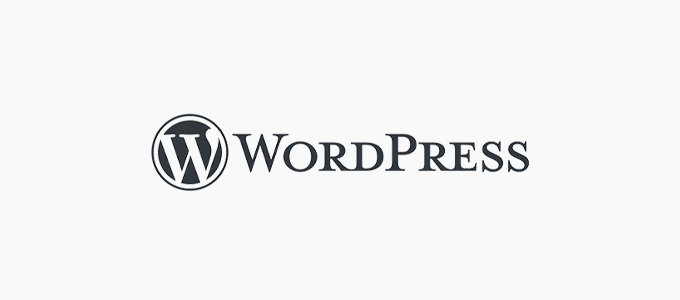
WordPress.org is the world’s most popular blogging platform. Started in 2003, WordPress now powers more than 43% of all websites on the internet.
Note: It’s easy to confuse WordPress.org with WordPress.com, which is a blog hosting service mentioned later in this list. See our guide on the difference between WordPress.org and WordPress.com.
WordPress.org is an open source free blogging platform that allows you to build your website or blog within minutes.
It is a self-hosted solution which means that you will need to sign up with a WordPress hosting provider. WordPress is a great option if you want to have full control over your blog’s future.
Pros
- WordPress.org is scalable and gives you control over every aspect of your website.
- You can grow your blog and add extra features like forums, online store, paid memberships, and sell online courses. This makes WordPress the best free blogging platform to make money.
- There are thousands of free themes available for WordPress. This allows you to create a beautiful website that stands apart from the crowd. Most popular WordPress themes come with built-in customization options that give you full design control over colors, fonts, etc., without editing any CSS code.
- You also get access to more than 59,000 free WordPress plugins. These plugins are like apps for your WordPress blog that allow you to add features like contact forms, galleries, etc. See our list of must have WordPress plugins for all websites.
- WordPress is search engine friendly. You can easily create SEO friendly URLs, categories, and tags for your posts. Plus, there’re a good number of great SEO plugins for additional optimization.
- You can easily enable Google Analytics powered website analytics in WordPress, so you can see the stats that matter. This helps you grow your new blog traffic and subscribers.
- Last but not least, WordPress’ drag-and-drop editor makes it easy to create any type of multimedia content on your blog site. It also has options to embed dynamic content like videos, social media feeds, Google AdSense, graphs, charts, and more without any technical know how.
Cons
- Managing your own website comes with a bit of a learning curve as you would have to familiarize yourself with WordPress admin backend.
- You will have to manage your own backups and security.
Pricing
WordPress software is free, but you’ll need to have a domain name (about $14.99/year) and hosting (usually starting from $7.99/month).
You need a domain name and web hosting for starting any type of website.
WPBeginner users can get started for only $2.75 per month with Bluehost, an official WordPress recommended hosting provider. They are offering our users 60% off on web hosting and a FREE domain name.
See our guide on how to start a WordPress blog for complete step by step instructions.
Overall, WordPress is an excellent choice for both personal blogs as well as professional blogs.
Majority of the well-known bloggers on the internet use WordPress as their content management system because it’s user-friendly and comes with all the functionality that you’ll need to create a successful blog.
Bonus: Aside from creating a blog site, you can also use WordPress to create a small business website as well as an online store. For more details, see our detailed guide on how to make a WordPress website.
2. Web.com

Web.com is a well-known website builder platform that comes with the built-in feature to add a blog section to your business website or online store.
Their drag & drop website builder platform is extremely easy to use for non-techy users, and they offer very affordable prices to get started ($1.95).
You can choose from their dozens of pre-made template and then customize your blog layout without writing any code. It comes with all the powerful features like SEO tools, blog security features, autosave & backup, website analytics, and more.
Pros
- Beginner friendly drag and drop website builder (no coding needed).
- Dozens of fully customizable templates for your blog.
- Easy setup with no hassles, since Web.com takes care of all the technical details of hosting your website.
- Affordable starting pricing – $1.95 per month and it includes all the essential features
- Free domain is included with all paid plans.
- 24/7 customer support available via phone, live chat, and email.
Cons
- The extensions / app ecosystem is small, so there aren’t as many third party plugins like WordPress.
- Blogging features are no where near as powerful as WordPress.
- Since Web.com is a proprietary website builder, switching your website to another platform later is difficult.
Pricing
Web.com pricing starts at $1.95 per month for their website starter plan which comes with their drag & drop site builder, blogging platform, hundreds of beautiful templates, thousands of free stock images, and a free domain.
This price is available for WPBeginner readers as part of our Web.com coupon deal. All you need to do is click on our link to get this special price.
If you want their powerful SEO tools or eCommerce features, then you’ll need to upgrade to their Marketing plan starting at $7.95 per month or their eCommerce plan starting at $13.95 per month.
If you’re a small business that doesn’t want to use WordPress, then Web.com is the next best choice considering everything you get for the price.
3. Wix

Wix is a popular hosted platform to build websites. Their drag & drop website builder offers a solution for small businesses to easily build a website. You can also add a blog to your website by adding the Wix Blog app.
Wix.com was founded in 2006 as a platform where anyone could create their own stunning website with no coding skills required. It has currently over 110 million users across the globe.
Pros
- You can customize your site using dozens of templates and third party add-ons.
- Build your site with easy drag and drop tools; no coding or HTML skills required.
- Setup is quick and easy.
Cons
- The free account is limited and shows Wix branding and ads on your site.
- Free third party apps are limited.
- Once you choose a template you cannot change it.
- Ecommerce features are limited to paid plans, and even those features are limited.
See our article on Wix vs WordPress for a detailed comparison of the two platforms.
Pricing
The basic Wix website builder is free. With a free Wix account, you’ll get a Wix subdomain that looks like this: https://username.wixsite.com/example.
However, you can add a custom domain for $4.50/month. Their premium plans start from $16/month and go up to $159/month.
4. HubSpot CMS
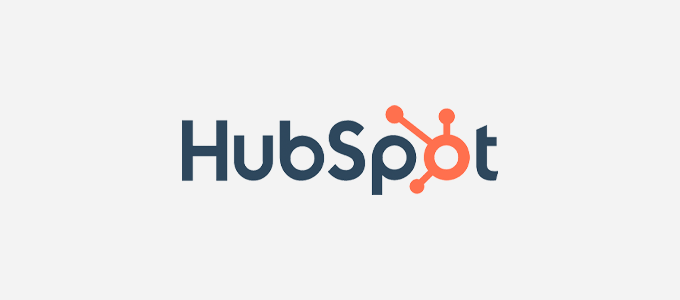
HubSpot CMS Hub is an all-in-one blogging platform for small, medium, and enterprise websites.
It’s built on top of HubSpot’s marketing and CRM tools, so you can use a single platform to create a website, get more subscribers, send newsletters, manage your customer list, and more.
Their website builder makes it easy for you to customize your website design layout, and you can even personalize the content readers see based on their past behavior.
Pros
- Easy-to-use drag and drop website builder with no coding skills required.
- Quick and easy setup, since HubSpot will host your website for you.
- Fully optimized for SEO and conversions.
- Free SSL certificate is included.
Cons
- While the HubSpot CRM itself comes with free tools (like contact management, email marketing and forms), the CMS does not have a free version available.
- Pricing may be steep as you move up the tiers.
- If you’re moving from another blogging platform, the migration process may be lengthy, depending on your previous provider.
Pricing
HubSpot CMS plan starts at $25 per month and includes all the main features to have a secure, well-designed blog, as well as the marketing tools you’ll need to grow it.
For the custom SEO recommendations and advanced features, you’ll want to upgrade to the higher tiers.
WPBeginner readers get a free 14-day trial.
Note: You can use WordPress combined with HubSpot free plugin to combine the power of the best blogging platform and marketing tools.
5. Hostinger Website Builder
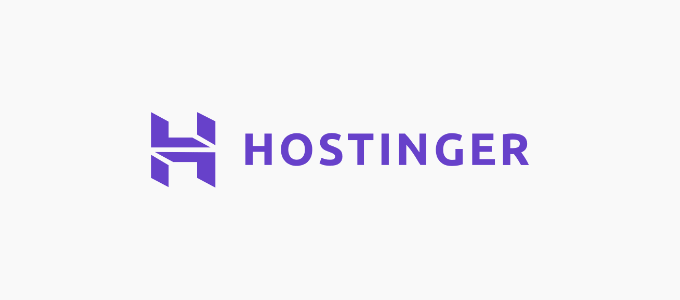
Hostinger Website Builder is an all-in-one platform that you can use to create a blog, small business website, portfolio, or online store.
It offers a unique website builder that’s powered by artificial intelligence (AI). Simply answer three questions, and the AI will automatically build a website for you. This includes relevant copy and images that you can customize using the drag and drop editor.
Hostinger is also one of the best web hosting providers on the market. So, nearly all of their plans come with web hosting, a free domain name, free business email address, and more.
Pros
- Quickly create a blog with the AI-powered website builder and 150+ pre-made templates.
- Drag and drop editor to change formatting, add new elements, and create pages.
- eCommerce support with 20+ payment gateways and no additional transaction fees.
- Built-in search engine optimization tools to improve your Google ranking.
Cons
- It lacks the third party plugins and addons that blogging platforms like WordPress.org offer.
- Switching to a new website template after you’ve already chosen one is difficult.
- There’s no free plan, but they offer a 30-day money-back guarantee.
Pricing
For WPBeginner readers, you can get up to 82% off using our Hostinger coupon. The Single plan starts at only $1.79 per month and it includes AI website creation, eCommerce features, and more.
To get a free domain name, you’ll need to upgrade to the Premium plan, which starts at $2.24 per month.
6. Gator by HostGator
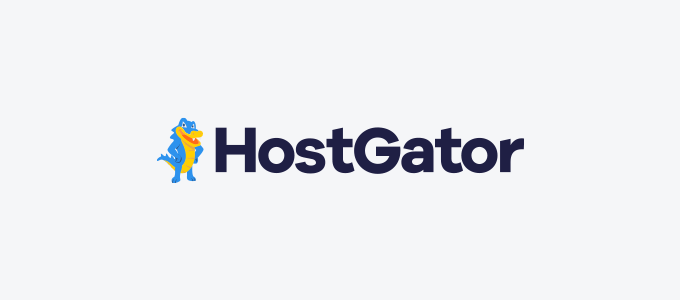
Gator is a website builder and blogging platform created by HostGator, the popular web hosting company that we once used to host the WPBeginner website. Gator offers a drag & drop tool that you can use to build any type of website including blogs, business sites, and even an online store.
It’s important that you don’t confuse the Gator builder with HostGator website hosting. You can use HostGator hosting service to start a WordPress blog like we have done.
However, if you are looking for a non-WordPress all-in-one blog platform and hosting solution, then Gator is the perfect option.
Pros
- Easy drag and drop builder to customize your blog & website design.
- Quick setup – no technical hassle.
- Backups, performance, and security is all handled by HostGator (no headaches).
- Free domain and SSL certificate is included in all plans.
- Can easily add an online store to your blog with just a few clicks.
Cons
- There is no free account, but they do have a 45-day money back guarantee.
- Ecommerce features are restricted to higher plans only.
- Limited number of apps and extensions.
Pricing
WPBeginner users get 55% off on all Gator builder plans. The Starter plan costs $3.46/month and it comes with all the features you need to start a successful blog including a free domain and SSL certificate.
You just need to make sure to use our Gator Website Builder coupon code: wpbeginner to get 55% off.
7. WordPress.com

WordPress.com is a blog hosting service offered by Automattic, a company created by WordPress.org co-founder Matt Mullenweg.
WordPress.com offers a basic blog hosting service for free. You can purchase additional options like a custom domain name, additional storage, and other premium services.
Started in 2005 with a goal to bring WordPress experience to a larger audience, WordPress.com is a good blogging site for users who don’t want the advanced features of self-hosted WordPress.
Pros
- No setup required.
- Easy to use and manage.
- It’s completely free if you are happy with a WordPress.com subdomain. Your free website name looks like this: https://example.wordpress.com.
Cons
- Limited options to extend your own site. You cannot use custom themes and plugins for customizing your blog.
- You cannot run advertisements on your blog. Instead, WordPress.com will show their ads on your free website.
- You do not own your blog, and WordPress.com can suspend your account if they find you are violating their terms of service.
Pricing
The basic WordPress.com account is free, but it will have WordPress.com ads and branding.
You can upgrade to their Personal plan for $4/month (billed yearly) to remove WordPress.com logo and advertising from your website. You also get a custom domain (such as www.yoursite.com).
For $8/month (billed yearly) you can get additional design tools and extra storage.
Because of the similarity in names, beginners often start with WordPress.com thinking they are getting the powerful WordPress.org software. After seeing the limitations, users often end up switching from WordPress.com to WordPress.org to have more features, ease of use, and control over their website.
8. Blogger

Blogger is a free blogging service by Google. It offers a quick and easy way to create a simple blog for non-tech-savvy users.
Blogger is one of the earliest blogging platforms in existence. It was first launched in 1999 by Pyra Labs. Later in 2003, Google acquired Blogger and redesigned it as the product we know today.
All you need is a Google account to start a free blog on Blogger.
Pros
- Blogger is free.
- It’s easy to use and manage without any technical skills.
- Has the added advantage of Google’s robust secure platform and reliability.
Cons
- You’re limited to basic blogging tools, and can’t add new features as your blog grows in popularity.
- Design options are limited, with fewer templates available. Third party templates for Blogger are often low quality.
- Blogger does not receive frequent updates or new features.
- Google can suspend your blog at any time, or even cancel the Blogger service altogether. (They have a history of abandoning projects without warning, such as FeedBurner.)
For more pros and cons of Blogger, see our comparison of WordPress vs Blogger (Pros and cons).
Some users start out with Blogger because it’s free, but eventually as their blog grows, they end up switching from Blogger to WordPress to get more features and control over their website.
Pricing
Blogger is free with a Blogger subdomain like https://example.blogspot.com. If you want to use a custom domain, you need to buy from a third-party domain registrar.
9. Medium

Launched in 2012, Medium has grown into a community of writers, bloggers, journalists, and experts. It is an easy-to-use blogging platform with limited social networking features.
Medium works much like a social networking site where you can create an account and start publishing your articles. After you sign up, you’ll have a profile address like this: https://medium.com/@yourname. But you cannot use your own domain.
Pros
- Medium is easy to use, with no setup required and no coding skills needed.
- It allows you to reach a built-in audience of people with similar interests.
- You can focus solely on writing, instead of designing a website.
Cons
- Features are very limited in terms of design or building a brand.
- Medium owns your audience, so losing your blog means losing all your followers.
- You cannot use your own domain name. You’ll simply get a profile page like in Facebook, e.g. https://medium.com/@yourname.
- You cannot run your own ads to make money because monetization is limited to their partner program.
For more detailed comparison, see our guide on WordPress vs Medium – which one is better?.
Pricing
Medium is free to use.
While the platform looks attractive at first, the lack of monetization and control leads to most people switching from Medium to WordPress.
10. Squarespace
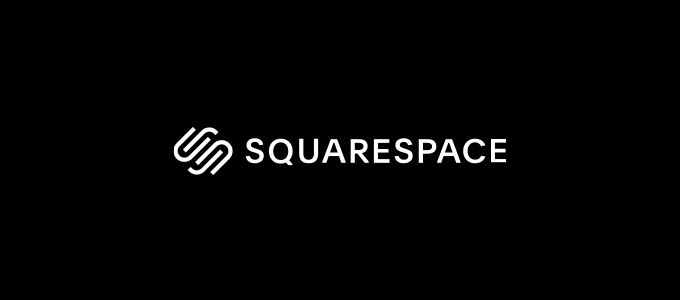
Squarespace is a website building service that allows you to create beautiful websites using easy drag and drop tools. It focuses on small business owners who are looking for an easy way to create an online presence.
Started in 2003, Squarespace currently powers millions of websites online (source: CMS market share).
Pros
- Squarespace is simple and easy to use for beginners who aren’t very tech-savvy.
- It has beautiful professionally designed templates.
- It separately offers domain name with SSL/HTTPs and eCommerce stores.
Cons
- Squarespace is limited to the features built into their proprietary platform.
- Integrations are limited to a select few services and tools.
See our guide on WordPress vs Squarespace for a more detailed comparison.
Pricing
Squarespace has different pricing plans for websites and online stores.
Pricing for their Personal website plan starts at $23/month, or $16/month if you pay for the year in advance. For the Business plan, pricing starts at $33/month, or $23/month billed annually.
Whereas pricing for online stores starts from $27/month and up to $49/month.
Often users end up switching from Squarespace to WordPress to minimize their expenses and add more features on their websites.
11. Ghost

Ghost is a minimalist blogging platform with features entirely focused on writing blog posts. Started in 2013, Ghost is available as a hosted platform and as a software that you can install / host yourself. We’ll take a look at both options.
Pros
- Focused on blogging and writing.
- Clean, clutter-free, and intuitive user interface.
- Written in JavaScript, so it’s super fast.
- No setup required for the hosted version.
Cons
- Not easy to customize with apps.
- The simplified user interface means options are very limited.
- Not enough themes to change appearance of your site.
- Complicated setup if you install it yourself.
Take a look at our comparison of WordPress vs Ghost for more details on the topic.
Pricing
The self-hosted version needs a custom domain (about $14.99/year) and web hosting (starting from about $7.99/month).
Pricing for the hosted version starts at $25/month for 2 staff users with a 100k page view limit. Unless you buy a custom domain from a third-party domain registrar, your blog will be a Ghost subdomain ending with ghost.io.
12. Weebly
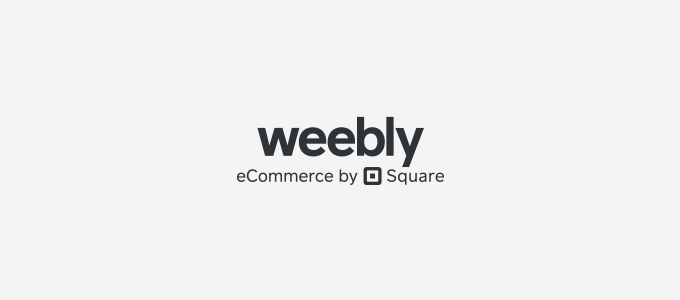
Weebly is a well-known website builder platform owned by Square’s payment platform. They offer easy to use website building tools for business websites and eCommerce stores.
They also have a blog feature along with free blog templates that you can add to your website.
Pros
- Fully hosted website and blogging platform.
- Seamless integration with Square payment platform.
- No setup required for the hosted version.
Cons
- Free plan has limited features and bandwidth. It also includes Weebly branding.
- Paid subscription are expensive compared to top blogging websites.
- Blogging and SEO features are not as powerful as WordPress.
Take a look at our comparison of Weebly vs WordPress for more details on the topic.
If you’re looking to switch from Weebly to WordPress, we have created a detailed step by step tutorial on how to properly move from Weebly to WordPress.
Pricing
They have a limited free version that comes with Weebly branding and ads.
Their paid plans start from $10 per month billed annually. The professional plan costs $12 per month, and their performance plan costs $26 per month.
Disclaimer: We also tried many other blogging platforms that are not listed in this article like Tumblr, LinkedIn, Joomla, Drupal, and others. But, we decided it wasn’t best to include them because we don’t want to cause choice paralysis.
Our Pick for the Best Blogging Platform
We believe that WordPress.org outperforms all other blogging sites. It is powerful, easy to use, affordable, and the most flexible of all available blogging platforms. Here are all the reasons why you should use WordPress.
To help you start your own WordPress site, we have created a complete guide on how to start a blog in 7 easy steps.
If you need help, then WPBeginner’s team of experts can even help setup your blog for free. Learn more about our free WordPress blog setup service.
If you’re looking for a WordPress alternative, then our second choice for the best blogging platform would be either Web.com or Wix.
Their drag & drop website builder makes it easy to build any type of website from blog to business website to an online store at a very affordable price.
Blogging Platform FAQs
We have helped over 400,000+ users start their website and have answered quite a lot of questions in the process. Below are some of the most frequently asked questions about blogging platforms.
Which is the best blogging platform for SEO?
In all our marketing research, we have found that WordPress is by far the best blogging platform for SEO because it has powerful SEO plugins like All in One SEO that you can use to improve your blog’s rankings.
Which is the best free blogging platform?
Most blogging platform that we have listed above offer a free version, but in our expert opinion, WordPress is the best free blogging platform. There is a reason why over 43% of all websites use WordPress.
Now while WordPress itself is free, you still need a domain name and web hosting both of which costs money. A domain is your website’s name on the internet (i.e wpbeginner.com) and web hosting is where your files are stored.
Some blogging platforms like Blogger or Medium will give you free hosting, but they put advertisements on your site which isn’t ideal.
This is why we recommend making a small investment of $2.75 per month to fully host own your blog by using WordPress in Bluehost.
You may also want to see our guide on why is WordPress free and what’s the catch.
What platforms do most bloggers use?
According to our blogging research data, most bloggers use WordPress to create their blog and it powers over 43% of all websites on the internet.
People publish over 70 million new blog posts on WordPress every month.
You may also find our history of blogging article helpful to better understand how various blogging platforms evolved.
How can I make my blog popular?
The best way to make your blog popular and grow your audience is by creating high quality content and promoting it on social media platforms. You must understand the problems your target audience is having and then help them solve it.
We have created the ultimate guide on how to increase your blog traffic with 27 proven tips that you should check out.
Which blog topic is the best for earning money?
You can make money with just about every blog topic as long as you have an audience, but there are several blogging niches that are more successful than others. The top blog topics include health & fitness, personal finance, fashion, lifestyle, business & marketing, and travel.
For a full list, see our best blogging niche guide as well as our proven tips to monetize your blog.
What is the best time to publish a blog post?
According to research and studies, the best time to publish a blog post for maximum traffic is Monday around 11 a.m EST.
But the real answer is that it depends on your audience and their location. For example, if majority of your audience is in Australia, then 11 a.m EST would not work.
We have a detailed guide on how to test the best publishing time for your blog.
How long does it take before a blog becomes popular?
Too often beginners start a blog with expectations that it will immediately become successful. Based on our experience, most blogs take at least 7 – 8 months before seeing decent traffic with the real long-term results showing up after 2-3 years.
This is also true for just about any kind of creator based business like a YouTube channel or a course.
Of course there will be some exceptions where a creator can find instant success, but those are not the norm.
For example, our WPBeginner blog which is one of the highest earning blog on the planet was started in 2009. See WPBeginner income report.
How many times a week should I blog?
The frequency of how much you publish is less important than the consistency. We recommend that you start with consistently publishing one blog post per week. If you can do that for 3 weeks in a row, then try doing 2 and then ramp it up.
At WPBeginner blog, we publish 5 days a week (Monday to Friday).
But on our other business blogs, we only publish two blog posts a week.
What are the top 3 best blog sites for beginners?
Our top 3 choices for the best blog sites for beginners are:
- WordPress – self-hosted with WordPress is the best blogging site overall.
- Web.com – a low-cost alternative to WordPress with web site building solution for small businesses.
- Wix – full website builder platform and a good WordPress alternative.
We hope this article helped you choose the best blogging platform for your next blog. You may also want to see our guide on how to create an email newsletter to grow your blog subscribers, and our guide on how to create a business email address for your blog.
If you liked this article, then please subscribe to our YouTube Channel for WordPress video tutorials. You can also find us on Twitter and Facebook.




Syed Balkhi says
Hey WPBeginner readers,
Did you know you can win exciting prizes by commenting on WPBeginner?
Every month, our top blog commenters will win HUGE rewards, including premium WordPress plugin licenses and cash prizes.
You can get more details about the contest from here.
Start sharing your thoughts below to stand a chance to win!
openteq says
Wow, these are all really helpful. Thank you for sharing all of this!
WPBeginner Support says
Happy to hear you found our list helpful
Admin
Linda says
Great article.Thank you for this.
WPBeginner Support says
You’re welcome, glad you found our article helpful!
Admin
James Allen says
Thank you for creating this article! I don’t have any real networking connections, so I’m wanting to build up my writer’s portfolio before making my freelancing website public and all that. I felt that blogging would be a great asset in that regard.
WPBeginner Support says
It certainly can be, we hope our list helps you find the best starting point for you
Admin
David Myth says
Thanks for uploading this article. Cleared many confusions I had and the list seems well researched too.
WPBeginner Support says
You’re welcome, glad to hear our list was helpful!
Admin
Body And Blast says
Thanks for sharing a fine content with us.
WPBeginner Support says
You’re welcome, glad you found it helpful!
Admin
purohitsforpooja says
This beginners’ guide on choosing the best blogging platform is incredibly informative. It breaks down the key factors to consider when selecting a platform, making the decision-making process much easier for newcomers. The insights provided in this article are invaluable for anyone looking to start their blogging journey. Thanks for sharing such a helpful resource!
WPBeginner Support says
Glad you found it helpful!
Admin
Patricia says
Thank you for sharing such a wonderful blog. Each and every detail is explained very well.
WPBeginner Support says
Glad you think so and that you find our articles helpful!
Admin
Namrata Sinha says
Thanks for sharing this amazing piece of content. This one is really helpful.
WPBeginner Support says
Glad our article was helpful!
Admin
Jacqueline says
absolutely excellent article thank you
WPBeginner Support says
Glad you liked our article
Admin
aditya says
Great article, thanks for sharing with us! It was really well written and simplified, even little kids can understand the language written here, thanks alot!!!
WPBeginner Support says
Glad you foud our article easy to understand
Admin
Lora Collin says
Wow, these are all really helpful. Thank you for sharing all of this!
WPBeginner Support says
You’re welcome, glad our guide was helpful!
Admin
Aayushi Prakash says
It was a wonderful time while going through your article and I’ve got what I was looking for
I’m so glad you chose to share this article. It’s given me a ton of great information that I need for myself, but it was just too hard trying to find everything on Google.
For beginners, this is a well-defined and quite instructive site. Thank you for sharing this information in such a straightforward yet beautiful manner.
Wish you all the best for your future endeavours. Once again, thank you for your valuable tips and ideas helping freshers like us. I will surely share this beautiful piece of article with my peers and people who actually need guidance.
Liz says
Future bloggers, if you didn’t note this site’s URL, it is WPBEGINNER.COM. Of course the WP stands for WordPress. The individuals responding to your questions and comments are associated with WP. Naturally, that is why their responders are totally gung ho, citing that WP is, hands down, the best! And there’s nothing wrong with that. In the end, this site IS a promotion FOR WordPress BY WordPress tho it just so happens to be the BEST you can get and they’re certainly not going anywhere soon. As long as there are bloggers and readers like you, WordPress will be powering great websites! Personally, I’m going with WordPress!!
WPBeginner Support says
To clarify, we are not a part of WordPress itself, we simply use WordPress and enjoy it very much. You can learn more about us on our about us page below:
https://www.wpbeginner.com/about-wpbeginner/
Admin
Alex says
This is wonderfully helpful information. As someone who is starting a career in digital content creation and content writing, this concise list is invaluable to me.
Thank you!
WPBeginner Support says
Glad our guide was helpful
Admin
Karina says
Super helpful and informative. Glad I chose WP
WPBeginner Support says
Glad you found our content helpful and hope you continue to enjoy WordPress
Admin
simon says
Just the information I was looking for! WordPress.org it is then…
WPBeginner Support says
Glad our guide was helpful
Admin
Jane Carey Perez says
Thank you for this. I understand now the difference between them. The content is nice and well- explained.
WPBeginner Support says
Glad our guide was helpful
Admin
chrissy says
So this is basically an advert for Word Press…
Editorial Staff says
Nope. We use WordPress ourselves and believe it’s the best blogging platform.
WordPress is an open source software that powers 38% of all websites. We do not receive any compensation from WordPress foundation to recommend WordPress as the #1 provider.
It’s #1 in our list because we believe it’s hands down the best blogging platform that offers users the most features & flexibility.
Admin
Mary says
Chrissy I’m with you though I don’t mind. I don’t think Wpbeginner would say all this if they didn’t believe it. I think they have sold me. And everything is a kind of promotion on the net only we may not notice it or choose to ignore it. I wish them (wpbeginner) well.
Ethinn says
tumblr is great thanks
WPBeginner Support says
Glad you found one of our recommendations helpful
Admin
Vinayak says
Thanks for the great article.Can one directly move from wordpress.com to a hosting site like Bluehost,or does one need to move to wordpress.org first?
WPBeginner Support says
WordPress.org sites are hosted sites, you do not move the site directly to WordPress.org
Admin
jen says
helpt me alot, thanks
WPBeginner Support says
You’re welcome
Admin
Ayush Mishra says
Thankyou for such great information about blogging. It definitely helped me to increase my knowledge about blogging. Such a great article .
WPBeginner Support says
Glad you found our content helpful
Admin
Peter Christianson says
Thank you for all of the information. It seems like there is so much to learn!
WPBeginner Support says
Glad our guide was helpful
Admin
harry says
Great tips! Thank you for this information. It is really informative and helpful.
WPBeginner Support says
You’re welcome
Admin
Alen Drew says
Just read your article and I must say, it is one of the most informative posts that I have read about blogging platforms.
If you ask my opinion, I personally love WordPress, it is easy to use, manage and customize. Infact I have a number of blogs running on WordPress with Bluehost and I’m quite satisfied with their performance.
Jonah says
Very informative. Thank you.
Is it possible for someone to move from blogger to WordPress.Org?
If yes, how is it done?
WPBeginner Support says
You would want to take a look at our guide below:
https://www.wpbeginner.com/wp-tutorials/how-to-switch-from-blogger-to-wordpress-without-losing-google-rankings/
Admin
sachin says
i wanna to know more about blogging
WPBeginner Support says
It would depend on what you’re looking for but our guides on our site should be able to give you a good starting point
Admin
udayavani says
valuable information.
WPBeginner Support says
Thank you
Admin
Shahzad says
Thanks for valuable information about different blogging platforms. This article is very informative and helpful for everyone.
WPBeginner Support says
Glad you found our content helpful
Admin
ANDO says
Thanks for sharing this
WPBeginner Support says
You’re welcome
Admin